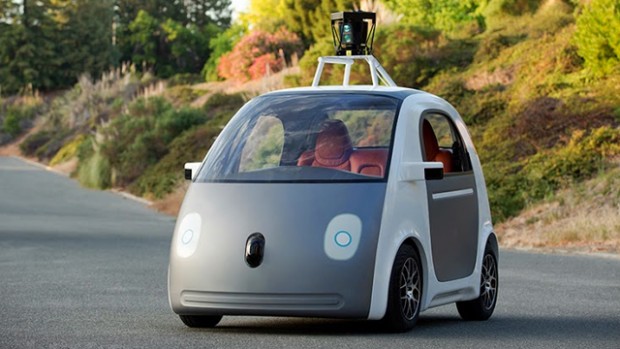Google has confirmed that its self-driving robot cars are capable of breaking the speed limit but only as a safety measure. The company's studies have shown that if its self-driving cars were to stick to the speed limit in areas where everybody was speeding, it could have a negative impact on safety.
Speaking to Reuters, Dmitri Dolgov, the lead software engineer on the driverless car project, confirmed that Google's vehicles are only programmed to go up to 10 mph over the US national speed limit as long as the driving conditions at the time permit it. “Thousands and thousands of people are killed in car accidents every year. This could change that.”
There are still some concerns surrounding driverless vehicles though. Christian Gerdes, Faculty Director of Stanford University’s REVS Institute for Automotive Research, recently rose some interesting questions:
“Should a car try to protect its occupants at the expense of hitting pedestrians?”. He then added, “Will we accept it when machines make mistakes, even if they make far fewer mistakes than humans? We can significantly reduce risk, but I don't think we can drive it to zero.”
Google's self-driving car project has been in the works for a long time and it only recently began testing on a couple of public roads in the US. Robot vehicles are still years off from being a regular thing but it's cool to see that it is slowly becoming a reality.
Discuss on our Facebook page, HERE.
KitGuru Says: Driverless cars are becoming a reality and could be seen on public roads within the next ten years. However, I think I'd rather see hoverboards come first. What do you guys think about driverless cars?
 KitGuru KitGuru.net – Tech News | Hardware News | Hardware Reviews | IOS | Mobile | Gaming | Graphics Cards
KitGuru KitGuru.net – Tech News | Hardware News | Hardware Reviews | IOS | Mobile | Gaming | Graphics Cards




Yea… Hover board would be epic, But that a whole no realm of technology…
Board Repulsion… Power Source… Power Storage… all rather big issues for a hover board….Such as from back to the future.
How is that even close to being relevant?
The laws of physics governs everyone and everything in our Universe!. If the momentum is big and traction is not good enough, surely all the brakes in the world are not going to stop it on time!. This is where if “defensive” programming is used, then it can reduce the threshold of speed upon correctly predicting the longer stopping distance. At the same time, when and if it decides to veer off striking a person, it might face a head-on collision which would be much much more severe. The choices made in some instances are not easy as the consequences are rather unpredictable due to varying or unknown conditions on the road. ie windspeed, water, ice, oil or other substances spilled on the road …. If the person sitting is going to bear the burden of the accident, then at least he/she would be presented a choice of “driving styles” in order to gauge the safety of the trip. ie like the governor of the cpu. Safety-utmost, cautious, balance, optimistic balance, performance choices.
How is it not? KitGuru added at the end that they would rather see hoverboards over driver-less cars . . .
http://funfrd.com/wp-content/uploads/2014/07/Blue-Screen-of-Death-in-car.jpg
http://www.georamadesign.com/wp-content/uploads/2014/05/Car-Crash-Lawyer-In-Las-Vegas.jpg
https://files.nyu.edu/ssc311/public/bsod/bsod13.gif